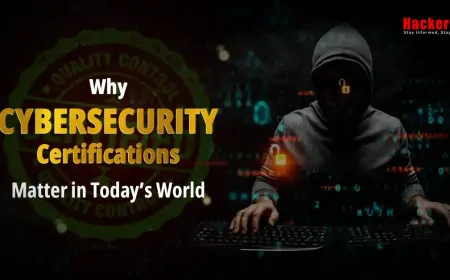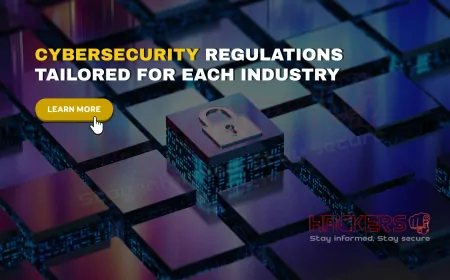Why Is Space Research Opening New Doors for Cybersecurity Startups?
The final frontier isn’t just about exploring distant galaxies—it’s also reshaping how we protect our digital world. Space research, once the domain of scientists and astronauts, is now a goldmine for cybersecurity startups. As satellites, space stations, and interplanetary missions rely on complex networks, the need for robust cybersecurity has skyrocketed. From securing satellite communications to protecting space-based data, the challenges of space are sparking innovation in cybersecurity solutions that benefit both the cosmos and businesses on Earth. This blog post dives into why space research is creating exciting opportunities for cybersecurity startups. We’ll explore how the unique demands of space technology are driving advancements in encryption, threat detection, and more, while offering practical insights for entrepreneurs looking to enter this high-stakes field. Whether you’re a startup founder or simply curious, this post will show you how space and cybersecurity are colliding to shape a secure future.

Table of Contents
- The Connection Between Space Research and Cybersecurity
- Opportunities for Cybersecurity Startups
- Challenges in Space Cybersecurity
- Key Cybersecurity Needs in Space: At a Glance
- Innovations Driven by Space Research
- Conclusion
- Frequently Asked Questions
The Connection Between Space Research and Cybersecurity
Space research relies heavily on technology—satellites transmit vast amounts of data, rovers communicate across millions of miles, and space stations manage critical systems in real time. These systems are vulnerable to cyberattacks, just like any Earth-based network. For example, a hacked satellite could disrupt weather forecasting, GPS, or even military operations. In 2022, a cyberattack on a satellite network disrupted communication services across Europe, highlighting the real-world stakes.
The unique environment of space—extreme distances, harsh conditions, and limited physical access—demands cybersecurity solutions that are fast, reliable, and resilient. This creates a perfect testing ground for startups to develop cutting-edge tools that can also protect terrestrial systems, like banking or healthcare networks. As space exploration grows, so does the demand for innovative cybersecurity, opening doors for startups to make their mark.
Opportunities for Cybersecurity Startups
Space research presents a wealth of opportunities for cybersecurity startups to innovate and grow. Here are some key areas where startups can thrive:
- Secure Satellite Communications: Satellites transmit sensitive data, like climate or military intelligence. Startups can develop encryption tools to protect these signals from interception.
- Zero Trust Architecture: Space systems require strict access controls. Startups can create “zero trust” solutions, ensuring no one accesses a system without continuous verification.
- Threat Detection for Space Networks: Real-time monitoring tools that detect anomalies in satellite or spacecraft networks are in high demand, offering startups a chance to innovate.
- Quantum Cryptography: Space research is accelerating quantum technology, which promises unbreakable encryption. Startups can pioneer quantum-based cybersecurity solutions.
- Partnerships with Space Agencies: Collaborating with NASA, ESA, or private firms like SpaceX provides startups with funding, data, and real-world testing opportunities.
- Cross-Industry Applications: Cybersecurity tools developed for space can be adapted for industries like finance or healthcare, expanding startups’ market potential.
Challenges in Space Cybersecurity
While the opportunities are vast, cybersecurity startups face unique challenges in the space sector:
- Harsh Environment: Space systems operate in extreme conditions, requiring cybersecurity tools that function reliably despite radiation or temperature swings.
- Latency Issues: Communication delays between Earth and space (e.g., 20 minutes for Mars rovers) demand solutions that work autonomously without real-time human input.
- High Stakes: A single breach in a space system could disrupt critical missions, so startups must deliver flawless, high-reliability solutions.
- Regulatory Hurdles: Space is heavily regulated, and startups must navigate complex compliance requirements to work with agencies or private firms.
Despite these challenges, the rewards—both financial and societal—are immense for startups that can deliver effective solutions.
Key Cybersecurity Needs in Space: At a Glance
The table below summarizes critical cybersecurity needs in space research and how startups can address them.
| Cybersecurity Need | Description | Startup Opportunity |
|---|---|---|
| Satellite Encryption | Protecting data transmitted to and from satellites. | Develop lightweight, high-speed encryption tools. |
| Threat Detection | Monitoring space networks for suspicious activity. | Create AI-based anomaly detection systems. |
| Access Control | Ensuring only authorized users access systems. | Build zero trust authentication platforms. |
| Quantum Security | Using quantum tech for unbreakable encryption. | Pioneer quantum cryptography solutions. |
Innovations Driven by Space Research
Space research is pushing cybersecurity startups to think outside the box. Here are some exciting innovations emerging from this intersection:
- AI-Powered Threat Detection: Space systems require real-time monitoring due to communication delays. Startups are developing AI tools that detect and respond to threats autonomously, which can also protect Earth-based networks.
- Lightweight Encryption: Satellites have limited processing power, so startups are creating efficient encryption algorithms that work in resource-constrained environments, benefiting IoT devices on Earth.
- Blockchain for Space Data: Blockchain’s tamper-proof nature is ideal for securing space data. Startups are exploring blockchain to verify satellite imagery or mission logs, with applications in supply chain security.
- Quantum Key Distribution (QKD): Space-based quantum experiments are enabling QKD, a method to share encryption keys securely. Startups can adapt this for ultra-secure terrestrial communications.
- Cross-Sector Solutions: Tools developed for space, like secure communication protocols, are being repurposed for industries like autonomous vehicles or smart cities, expanding startup opportunities.
These innovations show how space research is not just solving cosmic problems but also driving cybersecurity advancements that protect our daily lives.
Conclusion
Space research is opening new doors for cybersecurity startups by presenting unique challenges and opportunities. The need to secure satellite communications, protect space networks, and develop cutting-edge technologies like quantum cryptography is fueling innovation. While challenges like harsh environments and regulatory hurdles exist, the potential for startups to make a global impact is immense. By addressing space’s cybersecurity needs, startups can create solutions that also protect businesses, governments, and individuals on Earth. For entrepreneurs, now is the time to seize this cosmic opportunity and build a secure future across industries.
Frequently Asked Questions
What is space cybersecurity?
Space cybersecurity involves protecting space-based systems, like satellites or rovers, from cyber threats like hacking or data interception.
Why is space research relevant to cybersecurity?
Space systems rely on complex networks that are vulnerable to attacks, driving demand for innovative cybersecurity solutions.
How are satellites vulnerable to cyberattacks?
Hackers can intercept satellite signals, disrupt communications, or manipulate data, affecting services like GPS or weather forecasting.
What is a cybersecurity startup?
A cybersecurity startup is a small company developing tools or services to protect digital systems from cyber threats.
Why are startups interested in space cybersecurity?
Space offers unique challenges and high-demand opportunities, allowing startups to innovate and tap into growing markets.
What is quantum cryptography?
Quantum cryptography uses quantum mechanics to create unbreakable encryption, often tested in space for secure communications.
How can startups work with space agencies?
Startups can partner with agencies like NASA or ESA through contracts, grants, or collaborative research projects.
What is zero trust architecture?
Zero trust is a security model that requires continuous verification of all users and devices, ideal for space systems.
Can space cybersecurity benefit other industries?
Yes, tools like AI threat detection or quantum encryption developed for space can protect banking, healthcare, or IoT systems.
What is a data breach in space?
A data breach in space occurs when unauthorized parties access sensitive data, like satellite imagery or mission details.
How does AI help in space cybersecurity?
AI can detect and respond to threats in real time, crucial for space systems with communication delays.
What is blockchain’s role in space cybersecurity?
Blockchain ensures data integrity for space missions, like verifying satellite data, and can be adapted for terrestrial use.
Are space cybersecurity tools expensive?
They can be, but startups are developing lightweight, cost-effective solutions for space and Earth-based applications.
What is a satellite network?
A satellite network is a system of satellites and ground stations communicating to provide services like internet or GPS.
How do communication delays affect space cybersecurity?
Delays, like those for Mars rovers, require autonomous security systems that can act without immediate human input.
What is lightweight encryption?
Lightweight encryption is designed for low-power devices, like satellites, to secure data without heavy processing.
Can startups enter the space cybersecurity market?
Yes, the growing space industry welcomes innovative startups with accessible tools and partnerships.
What regulations affect space cybersecurity?
Regulations from space agencies and international bodies govern data security and system operations in space.
How does space research drive innovation?
Space’s extreme conditions push startups to create robust, efficient cybersecurity tools applicable to multiple industries.
What skills do cybersecurity startups need for space?
Startups need expertise in encryption, AI, networking, and compliance with space-specific regulations.
What's Your Reaction?










































































